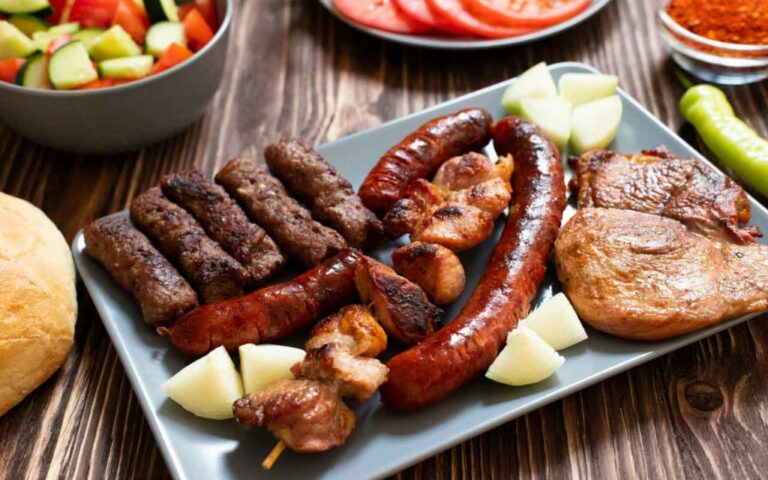Introduction: Exploring Albanian Cuisine
Albanian cuisine is a unique blend of traditional flavors and ingredients that have been shaped by the country’s geographical location and its rich cultural history. Albanian cuisine is often viewed as part of the broader Balkan culinary culture, but it has distinct characteristics that set it apart from other Balkan cuisines. From its unique ingredients to its blend of sweet and savory flavors, Albanian cuisine offers a rich culinary experience that is worth exploring.
The Influence of Geographical Location
Albania’s geographical location has played a significant role in shaping its cuisine. The country’s proximity to the Mediterranean Sea has resulted in a cuisine that is heavily influenced by seafood and fish. Albania is also located at the crossroads of the Balkans and the Middle East, which has led to a fusion of different culinary traditions. Albanian cuisine is characterized by its use of fragrant herbs, spices, and seasonings, which give it a distinctive flavor profile.
Unique Ingredients and Dishes
Albanian cuisine is known for using fresh, locally sourced ingredients, including vegetables, fruits, meat, and dairy products. Some of the unique ingredients used in Albanian cuisine include feta cheese, lamb, and mountain herbs such as oregano and thyme. Albanian cuisine is also characterized by its use of phyllo dough, which is used to make a variety of savory and sweet dishes such as burek and baklava.
The Importance of Dairy in Albanian Cuisine
Dairy products are an essential part of Albanian cuisine and are used in a variety of dishes, including soups, stews, and desserts. Albanian cuisine is known for its rich and creamy yogurt, which is often eaten as a side dish or used as a base for sauces. Feta cheese is also a staple in Albanian cuisine, and it is often used in salads, pies, and other dishes.
A Blend of Sweet and Savory Flavors
Albanian cuisine is characterized by its unique blend of sweet and savory flavors. Many Albanian dishes, such as tavë kosi (a baked lamb and yogurt dish) and fërgesë (a dish made with peppers and tomatoes), have a sweet and sour taste that is achieved by combining ingredients such as vinegar and sugar. Albanian cuisine is also known for its use of spices and herbs, which add depth and complexity to dishes.
The Role of Hospitality in Albanian Dining
Hospitality is a vital part of Albanian culture, and it is reflected in the country’s cuisine. Albanian dining is often characterized by large feasts that bring together family and friends. Guests are treated to a variety of dishes, and it is customary for hosts to keep serving until their guests are completely satisfied.
A Look at Traditional Albanian Beverages
Albanian cuisine is also known for its traditional beverages. Raki, a distilled alcoholic beverage made from grapes, is a popular drink in Albania and is often served as an aperitif. Albanian coffee, which is similar to Turkish coffee, is also a staple in Albanian culture and is often served after meals.
Conclusion: The Richness of Albanian Culinary Culture
Albanian cuisine is a rich and diverse culinary tradition that has been shaped by the country’s geography, history, and culture. From its unique ingredients and dishes to its blend of sweet and savory flavors, Albanian cuisine offers a rich culinary experience that is worth exploring. Whether you are sampling a traditional Albanian dish or enjoying a cup of Albanian coffee, you are sure to be impressed by the richness and depth of this culinary culture.

